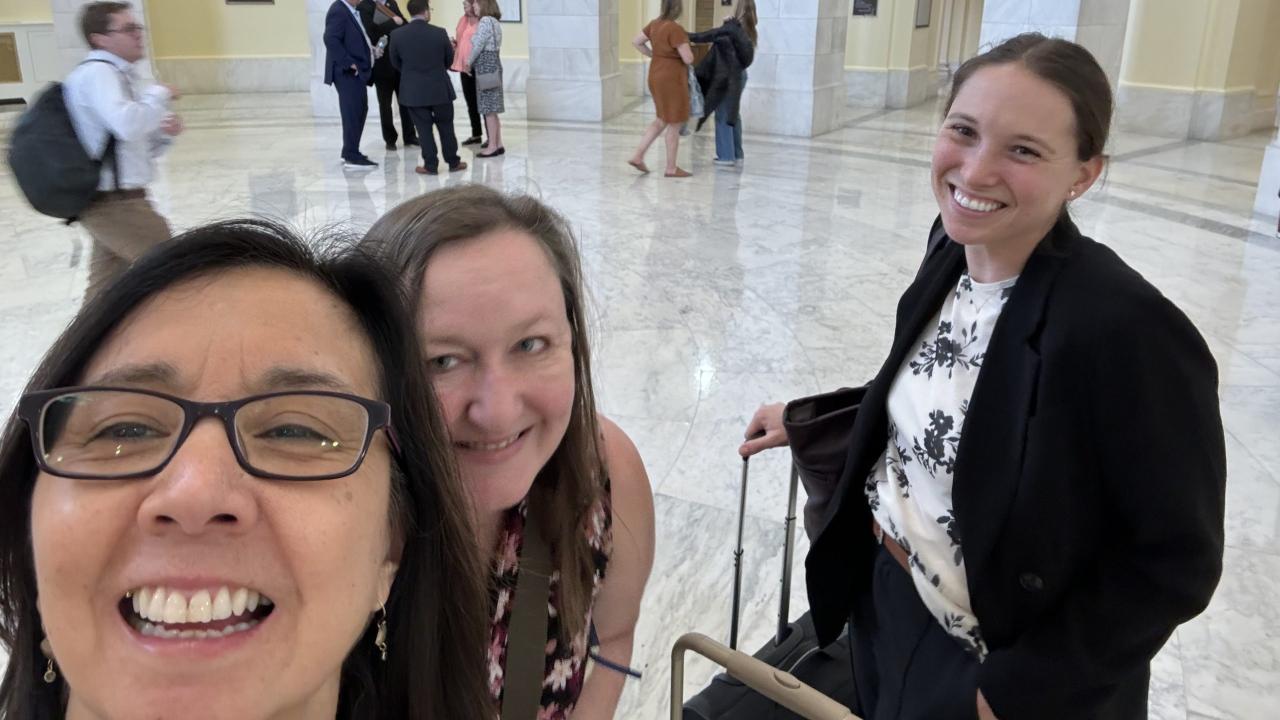
CNPRC Leadership Visits Congressional Offices
This month, leadership from all seven National Primate Research Centers (NPRCs) and the Caribbean Primate Research Center convened in Washington, D.C. In addition to their internal meetings, leaders from each center engaged with congressional office staff to underscore the importance of their efforts to their local representatives.
The California National Primate Research Center’s (CNPRC) Interim Director Karen Bales, Associate Director of Research Lisa Miller, and Manager of Outreach and Communications Logan Savidge traversed the bustling hallways of Congress to spotlight the incredible research conducted at the CNPRC. Meetings at the offices of Doris Matsui, Ami Bera, Mike Thompson, and John Garamendi revealed a variety of diverse interests and priorities shared by the CNPRC and our government representatives, including mental health disorders and the intersection of environmental factors and human health.
For example, Miller discussed the remarkable work in the Respiratory Disease Unit. Experts from the nation's only nonhuman primate inhalation core uncovered the long-term effects of wildfire smoke exposure during infancy on the adult immune system. Without federal funding to maintain the breeding colony in California, these critical discoveries about how early exposure can affect animals later in life might not have been possible.
In addition to highlighting CNPRC’s diverse research accomplishments, Bales outlined research from the Neuroscience and Behavior Unit that investigates potential interventions for the detrimental effects of social isolation and prolonged grief disorder. Our researchers are exploring the potential mechanisms by which a new pharmacological product designed to treat generalized depression might alleviate the effects of grief.
The remainder of the meeting was dedicated to administrative topics and challenges shared by the centers. More specifically, the meeting offered an opportunity for NPRC leadership to speak directly with representatives from the National Institutes of Health (NIH) and the Office of Research Infrastructure Programs (ORIP) about existing and upcoming funding opportunities.
Collaborative meetings like this are critical for fulfilling the NPRC’s mission as a network of biomedical and behavioral research centers developing solutions for human health issues by studying nonhuman primates. California leadership provided exciting updates about our recent research accomplishments.
